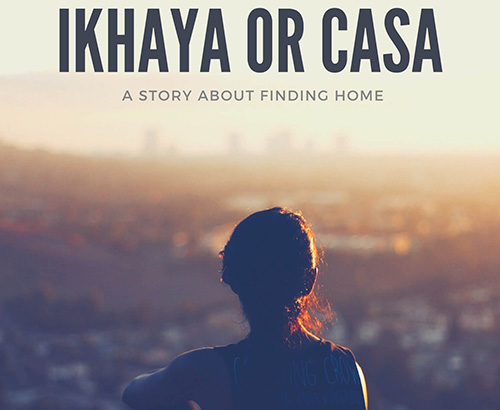

No place to call iKhaya
Ongezwa Shosha goes on a journey searching for identity

It is said that through knowing where you come from, your history, roots, language and values, comes your identity. But what happens when a home you’ve been calling a home your whole life is not your home? Ikhaya or Casa (home) centers around redefining what a home and sense of belonging is. It starts off by asking questions: “Where do I belong? What do I call home? Is it the language I speak? Is it where I am accepted? Is it where I was raised? Or is it where I was born?”. These are some questions asked by 19 year old Eliana Nkembo, a young woman born to immigrant parents in a foreign country when talking about her identity.
The documentary shows that many factors including documentation and citizenship may hinder one’s chances of belonging and feeling accepted. Eliana Nkembo, was raised in South Africa when her parents moved from Angola and Congo. She finds herself in a position where she has no place to rightfully call home.
In both countries she is not fully accepted as one of them. Despite being born and raised in South Africa, without the documentation giving her South African citizenship, she finds herself facing major difficulties attending school and accessing basic human rights. However, she feels that she is not accepted in Angola either as she does not speak Portuguese and still struggles with Angolan documents to access education. This creates an identity crisis.
This is a story of fighting more than just issues of belonging and acceptance. It redefines the concept of home and the challenges the immigrants face in their everyday lives. Throughout we witness her family sharing their different struggles, mostly similar, of not being able to access education and the fear of the impact in the future. Despite these challenges, she defines a home as where the heart is and she believes that she carries her home with her, in her heart. They say home is where you feel most alive, where you create memories and form bonds. I recommend this documentary as it shows the hardships of refugees but that you are never entirely alone. There are many people going through the same struggles daily.







Leave a Reply